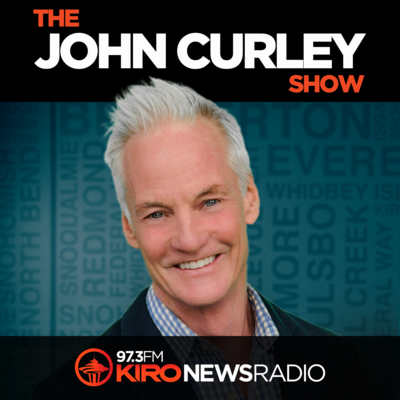
Highlights - The John Curley Show
Every weekday, John Curley has an irreverent take on the news. From big stories to small ones, they all get the Curley treatment and you’ll be left laughing and thinking about the headlines in different way.
Most Recent Episode
More Episodes

John Curley endorses Katie Wilson for Seattle mayor
Katie Wilson, the co-founder and executive director of the Transit Riders Union (TRU), earned more than 50% of the Aug. 5 primary vote to be Seattle's next mayor, leading incumbent Bruce Harrell, who captured less than 42% of the vote.
Political consultant Crystal Fincher told Axios it's "so rare" for a candidate to lose an election after capturing more than 50% of the primary vote. Reading the tea leaves regarding Seattle's political future, KIRO host John Curley used his show, "The John Curley Show," to officially endorse Wilson.
"I don't normally weigh in on local elections, because I live in Cle Elum ... but we had a chance to talk to Katie Wilson, and she's well-versed on the issue. She has a particular point of view," Curley said. "I didn't push her too hard on certain things. I just asked a few probing questions, and she did a pretty good job of handling, although she wasn't quite sure what I meant by who pays corporate taxes. So I thought I would endorse her."